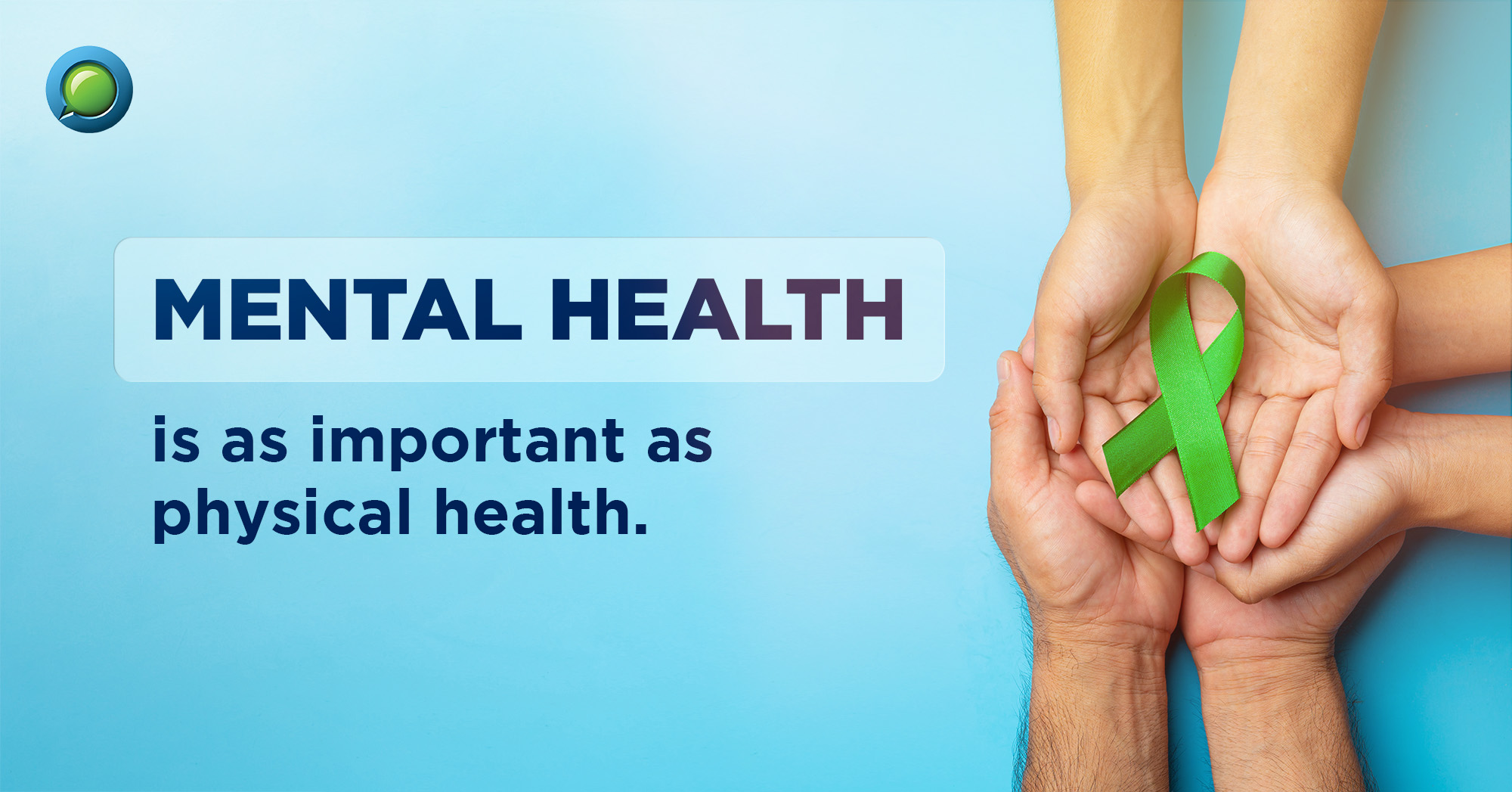Mental Health is as important as Physical Health- Don’t neglect it…
Mental health is an eminent component of good health. WHO states that a person who does not have a sound mind is not healthy at all, even if he is disease-free.
What is mental health?
The mental health of an individual reflects how he thinks, feels, acts, or behaves in different situations. It determines one’s ability to cope up with normal stresses, make worthwhile contributions to society and enjoy life. Any deviation from the state of emotional, psychological, behavioral, cognitive, and social well-being can result in mental illness or disorders (Anxiety disorders, Mood disorders, and schizophrenia disorders).
Need for mental health awareness – Alarming statistics
One in 7 Indians suffers from a mental health problem, however, the reported rates are lower owing to the attached stigma in Indian society followed by denial, and hesitation to come forward. India's proportional contribution to global suicide deaths is high and increasing. India accounts for 36.6% of global suicides in women and 24.3% in men. WHO reported that 4.5% of the Indian population suffers from depression and 3.5% have anxiety disorders. (Figure 1)
Figure 1: Mental illness in India
Why is good mental health important?
Mental health ascertains what choices we need to make in our lives to have healthy relationships (personal/social) with others, how to effectively handle stress, fight uncertainties of life and adopt changes.
Studies reported that good mental health is associated with increased learning, enhanced creativity, improved pro-social behavior, better ability to cope with adversities, and higher life satisfaction. It is also linked with better performance, high productivity, and efficiency at the workplace/school along with improved physical health and life expectancy
What are the risk factors affecting mental health?
The complex interaction between biological, and environmental factors may contribute to the development of mental health issues. A genetically susceptible individual [family history of mental health] is more vulnerable to stressful events. Brain chemistry can be affected by an unhealthy lifestyle (poor nutrition, excessive use of alcohol/drugs/tobacco), chronic medical conditions (Diabetes, cancer, hypothyroidism), personal history of brain injury/trauma, and life experiences that define the personality of an individual. Social & psychological factors that may negatively affect mental health are:
- Being abused or neglected as a child
- Family conflict/disorganization
- Abusive relationship
- A recent loss by death or divorce/heartbreak
- Social isolation/loneliness
- Financial disadvantage (Poverty/debt, Unemployment)
Early Warning Signs that calls for medical attention
Seek professional help if you feel miserable or experiences warning signs such as:
- Change in eating or sleeping patterns (too much / too little)
- Withdrawal from people
- Loss of interest in all activities
- Having unexplained aches and pains, constant fatigue (low energy)
- Feeling helpless/hopeless
- Smoking, drinking, or using drugs frequently
- Frequently confused, forgetful, angry, irritable, upset, worried, or scared
- Experiencing mood swings that may harm relationships
- Having persistent thoughts and memories
- Hearing voices or detachment from reality
- Suicidal thoughts/Thinking of harming yourself or others
- Inability to perform daily tasks ( getting to work /school, cooking)
Timely intervention such as counselling session with a qualified psychologist, therapy from a psychiatrist along with lifestyle modification can enable one to cope with mental health issues.
Tips to maintain positive mental health
- Eat healthy food
- Get plenty of sunlight (30 minutes to 2 hours/ day)
- Practice relaxation techniques (yoga, deep breathing, meditation)
- Stay physically & mentally active: Exercise regularly, indulge in favorite hobbies, learn new things.
- Have an adequate sleep to rejuvenate yourself. It helps in improving mood
- Avoid smoking and excessive alcohol consumption
- Interact with friends and family members. Stay connected and share your feelings with your loved ones.
Always remember that you are important. Stay strong and positive. Don’t feel ashamed of mental illness, it is just another medical condition that needs to be taken care of. Talk to doctor/psychologist @DocOnline for guidance and get help.













